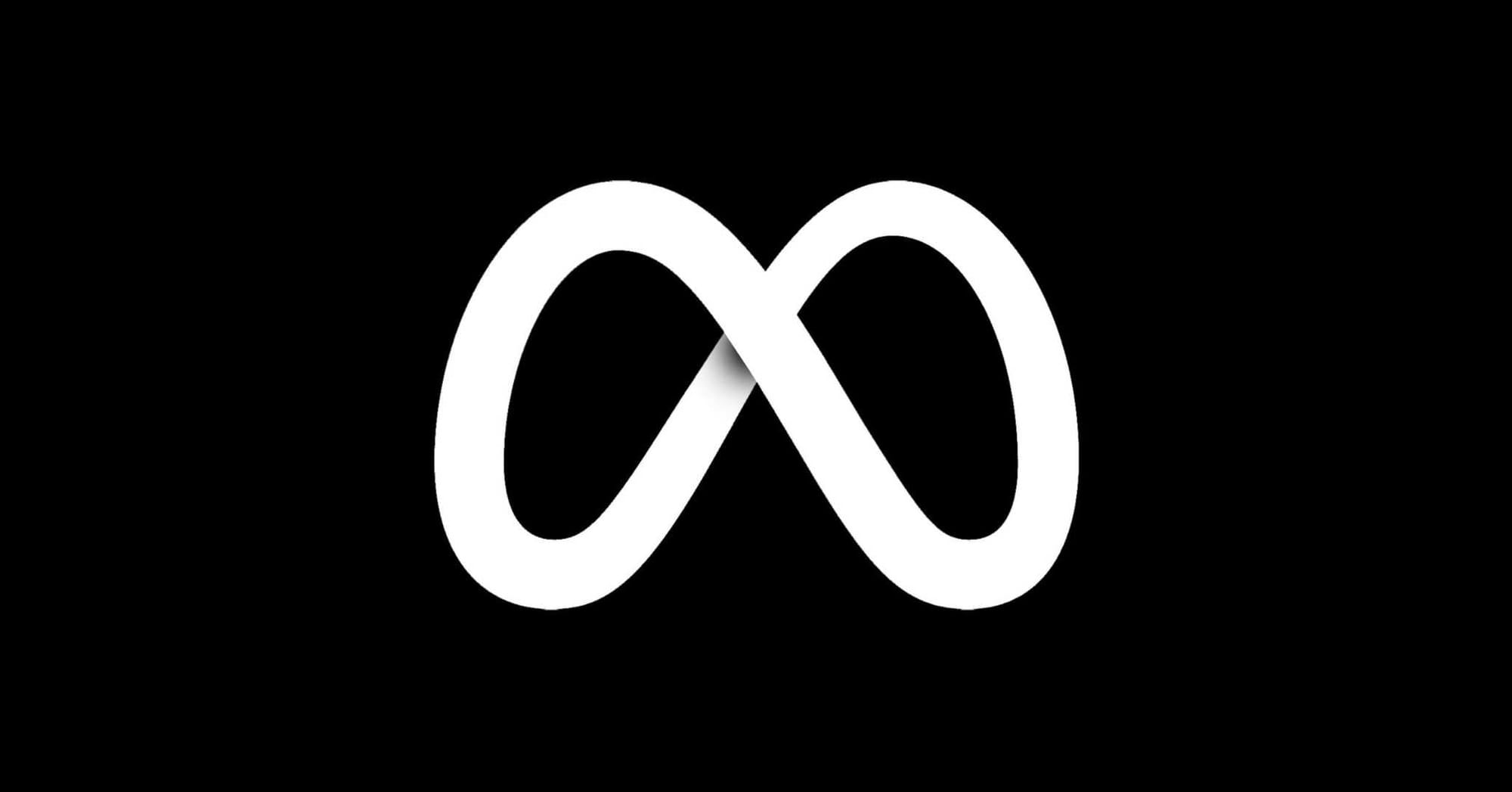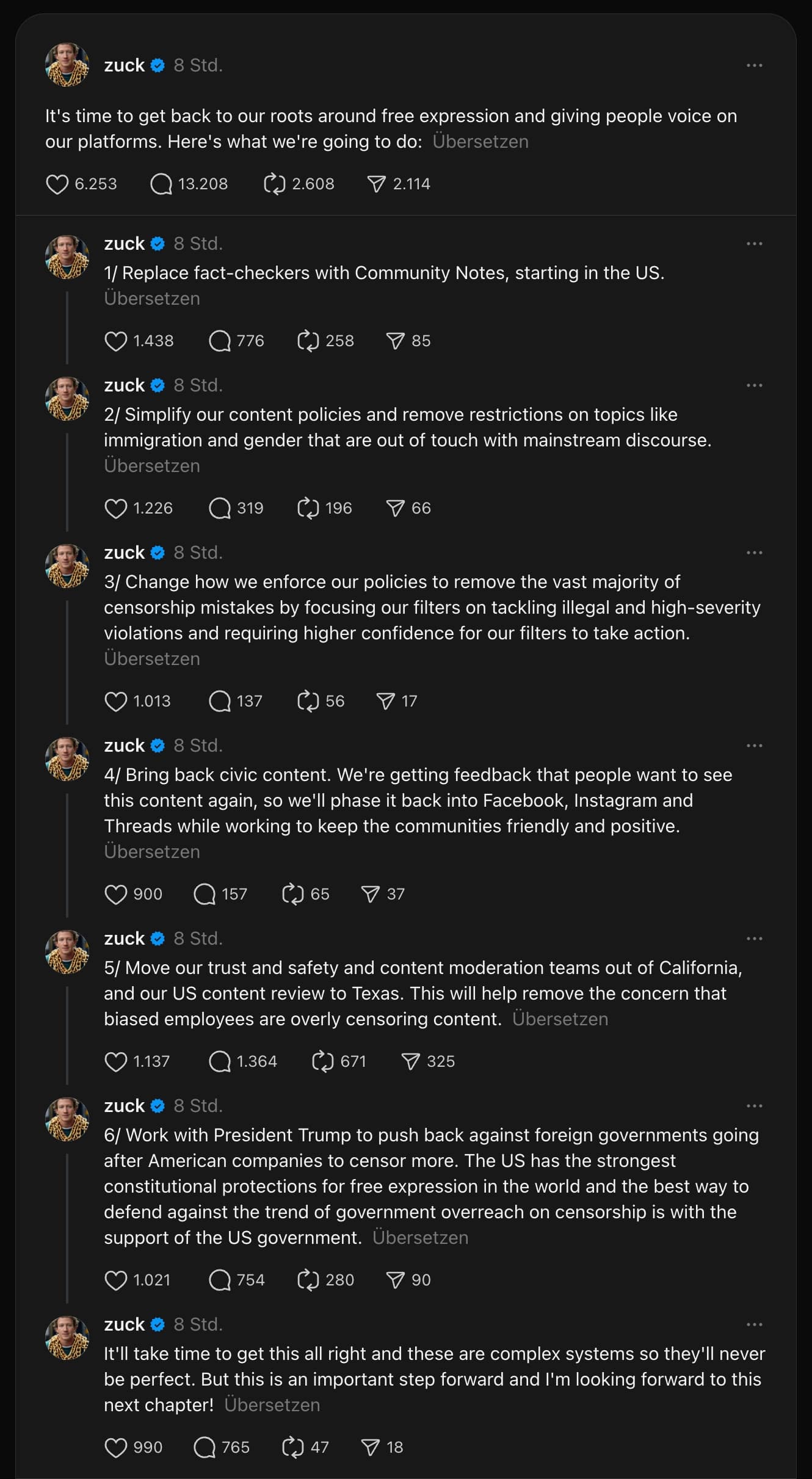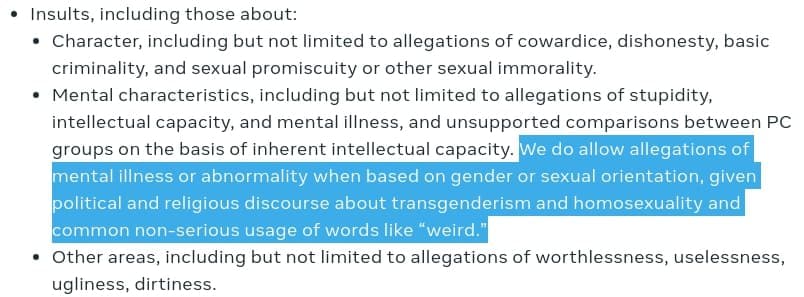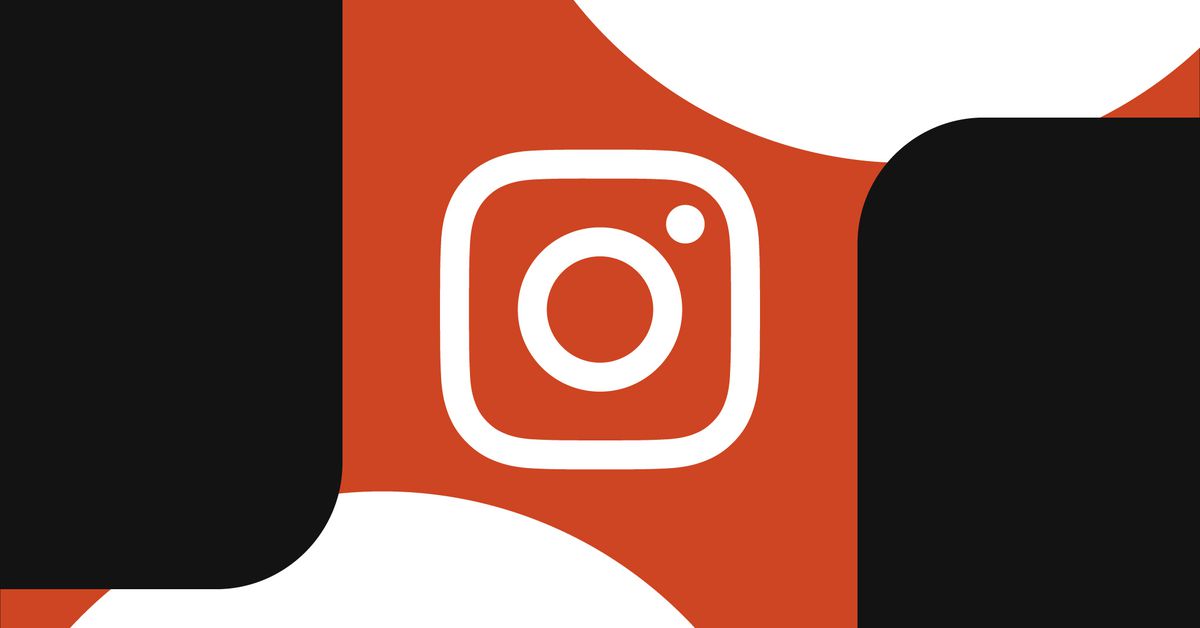What will happen when I leave Meta and its platforms
Meta's turn towards hate & fascism will have an impact on all its platforms. What will happen if I leave their services as a wedding photographer?

Well, this came suddenly, but not unexpectedly: when 2025 was just a week old, Zuckerberg announced that he was doing the #SpaceKaren and going full hate by removing fact-checkers, moving content moderation from California to Texas "to address concerns that biased employees are overly censoring content" and helping Trump push back against what they call "censorship" from foreign governments - and we in the EU call consumer protection:

Let's be realistic: this is not a change that will lead to "keep the communities friendly and positive". Twitter has become synonymous with hate speech, and the recent changes to Meta's hateful conduct policy give an indication of what to expect in the future:

Day by day new stories unveil that these changes come into immediate action in all its hate glory. The newest addition is the direct deletion of trans and non-binary themes from Facebook Messenger and Instagram. How hateful can you be?
The straw that broke the camel's back
As someone with a big heart for privacy Meta/Facebook has always been the evil corp. Facebook's naughty list fills a whole separate Wikipedia page (not even mentioning there that Facebook once bought VPN provider Onavo and used it to spy its users' Snapchat behaviour, which they couldn't buy) and the Wikipedia page of Instagram lists over a dozen of different risks while using the app (pointing at various studies and reports): from depression, anxiety and stress over social exclusion, drug use, eating disorder to addiction, self-harm and suicide. This is common knowledge and yet we act like everything's fine.
So Zuckerberg now ingratiating himself with Trump and the far right with this new course was just the latest chapter of a man who's career started by judging his fellow female students as hot or not. But its definitely the last chapter for me.
Hate is a line I will not cross - even if it harms my business.
What will happen when I leave Meta
The Fediverse is a new decentralised social web based on an open protocol that frees social media from the restrictions of Big Tech. Services in the Fediverse normally have a chronological timeline, are free of algorithmic feeds, free of tracking, free of ads and can interact with each other. You can find Fediverse alternatives for basically every Big Tech service: Mastodon for Twitter, Pixelfed for Instagram, Lemmy for Reddit, PeerTube for Youtube, etc.
Big tech has always been very good in telling us that everyone uses them and how relevant they are, especially for our business. Everything's easy - just place a targeted ad. Here, have 10 bucks to get trapped.
And of course we don't want to lose the time we've invested in this walled-gardened social media. We have been there for ages, gaining followers, making friends, building a portfolio. We used their apps every day - and became addicted. So leaving feels hard. But I want to do a reality check and talk about what might happen if I leave Meta.
This is a personal perspective from me as a self-employed wedding photographer. So, let's have a look:
Threads
Threads is the easiest as I never had an account there. I was barely active on Twitter back then and deleted my account around the time #SpaceKaren took over. I went to Mastodon in the Fediverse out of curiosity and over the time it became my main hub of my social media activity.
I spent some time on Facebook in the early years, but Facebook being Facebook made me lose interest and over the time my account and business page there (which never took off) got abandoned. I finally deleted everything during the pandemic. Never missed. Easy.
This is the first service I have some concerns about leaving. Let's break it down.
We all know how hard it is to get someone to switch from one messenger to another. People avoid change, and moving to a new service seems especially hard when "no one else" is there, or at least your best friends aren't. And another app? Unfortunately, the mere fact that Meta is tracking you with your WhatsApp metadata is not enough of a reason for most people. The fact that you are the one on the new service is not good enough for them to switch either.
And because WhatsApp is so ubiquitous, it's a very easy way to stay in touch with your clients in general, especially on shoot days. Sending the first wedding pictures to my couples' WhatsApp accounts over dinner is always a big hit.
Fears & Concerns
- losing contact with friends
- interaction with clients can be a bit harder
Reality & Conclusion
The reality is that WhatsApp has seen a lot of churn in the past because of changes to its privacy policy. People have already created accounts on other messengers like Signal. Some are actively using them, some are not. For those who had abandoned their accounts, I changed their names to something like "Peter | Signal" to remind myself to only use Signal when interacting with them, even if they had a WhatsApp account. In my environment, this led to more and more active Signal users.
Honestly, switching is not hard. We all have tons of apps on our phones and even without WhatsApp and Telegram I have 3 different end-to-end encrypted messengers installed + SMS successor RCS. I also managed to get my closest friends and family to switch to Signal - including my parents in their 70s.
For my clients, I've realised that quite a few of them already have Signal and are using it (great!). And for those who don't, it doesn't really matter in my business reality. RCS is a last resort, but most of my clients don't touch their phones on their wedding day, and many of the venues have poor reception. If I can't send them the first wedding pictures over dinner, I can always show them the pictures on my phone. Sparks joy as well.
So, yes, I might lose some contacts who are unwilling to switch. But honestly, so be it. Losing a contact on a messenger (remember: there's always phone and email) doesn't justify using (and being monitored by) a company that is willing to spread hate and fascism.
And then there is Instagram - where to start…
Being a photographer means having an Instagram account. It's THE way to attract new clients, keep up to date with industry trends and events, and showcase your portfolio and yourself as a photographer to the world.
Instagram has a massive 2 000 000 000 monthly active users worldwide - and a perversely high addiction rate (but still lower than TikTok). In the wedding photography industry, Instagram is basically everything. Not a course, not a workshop, not a conference, not a single photo-related service without the best tips on how to use Instagram, how to grow your audience, how to maximise your reach, how to go viral, how to attract new clients, how to use this or that tool to create stunning IG stories or reels. The best hashtags, the best posting time, the best video format, the best content... to trick the algorithm into thinking: you are relevant.
Instagram has become so popular among (wedding) photographers that some even question the need for a website (which will be part of a separate blog post).
Fears & Concerns
When I think about leaving Instagram, a lot of fears and concerns revolve around the benefits of a social photo platform:
- not being seen anymore with my work aka: the reach
- having trouble finding new clients
- losing connections with friends and the industry
Let's break it down and do an ✨ Instagram reality check ✨
Reality & Conclusion
Not being seen anymore aka: the reach
The fear of losing reach is the biggest weapon big tech has built over the last two decades. By requiring registration, restricting third-party access to APIs, and eliminating RSS as a free and open technology for accessing content from outside a service, these platforms have built a walled garden. A garden that you can only enter through a gate and that keeps everything you have grown there when you try to leave. You may be able to download your personal data thanks to GDPR, but you won't be able to take your followers with you.
Your reach on walled-garden platforms is granted by the grace of the algorithm. It's an open secret that only a small number of your followers will actually see what you post on their timeline until you reach a certain level of activity or your content fits the real-time analysis of a follower's account.
Klaudia (https://literatur.social/@viennawriter) has written a wonderful article on "The Myth of Reach", debunking the reach of algorithm-driven social media platforms and comparing it to open platforms like the Fediverse:

My personal experience matches Klaudia's article. The reach and activity of my social media accounts in the Fediverse is much higher than what I would achieve on Instagram, for example, with the same number of followers. I also experience a much closer relationship with my followers, but more on that later.
Which leads to another aspect of reach: activity.
When I look at my Instagram accounts, the activity has more or less disappeared. People don't comment or even like posts anymore. They watch and scroll. It started with the introduction of Snapchat's copy-cat Stories, and is now peaking with span killer and TikTok copy-cat Reels. It's gotten so bad that even Instagram has changed its primary metric to views instead of interactions:

We now have officially entered the human zombie phase.
They're pushing video so hard that they had to pull back a test of a new interface in 2022 after massive user complaints. The test basically turned the app into a full TikTok clone, and even celebrities, who made Instagram the self-absorbed hell it is, didn't like it. Instagram reversed the changes - for now - and had to add "but we need to evolve" to tell their users they were wrong, followed by an explanation that they were just reacting to what users were doing. Blaming users for wanting video in the app is a weak excuse. Especially when you consider that people widely upload single images as videos to please the algorithm.
In the end, it all comes down to this: Instagram is no longer a photo social network. It has become a video social network and will continue to force this change.
So, what does this mean for me?
When you leave a platform, you are obviously no longer seen by its users, and the number of Instagram users is huge. But when I look at the interactions and growth of my account, the things Instagram wants me to do (= videos) and the things it's hiding (= my photos posted to 90% of my followers, not to mention specific content), I get the strong feeling that the time and effort I put into Instagram isn't doing anything for my reach. And that I could spend that time on something with more value and impact.
Having trouble finding new clients
As I said at the beginning, Big Tech is very good at telling you how relevant and important they are to you and your business. Everyone seems to be there - and if not everyone, then certainly your customers. "You have to be where your audience is." That's why leaving Instagram feels so hard - especially as self-employed artist.
But Klaudia mentioned a valid thing in her article about why big tech platforms force this narrative:
"Because the whole „magic“ of commercial social media platforms lies in paid targeted advertising. You will find people who are interested in your work on the big commercial platforms, IF you pay money for it. Or otherwise only to a very limited extent."
Ever wondered why hot people on Tinder & Co. seem to disappear after some swipes? Or why you can boost your profile when you already swiped everyone in your area? That's why. You have to upgrade to a paid subscription to see those 10s that the app hides to free users.
Limiting reach is common business mechanic to make you pay for a service. I remember a discussion among photographers about 10 years ago where the recommendations for Instagram were: Don't change your profile to a business profile. Don't ever do a paid ad or your organic reach will drop drastically afterwards.
Which means: if I really want to reach my potential customers on Instagram, I have to do paid advertising. I have to spend money on a platform to boost my photos to people who don't interact anymore, who just consume. I have to spend money on a platform that has officially announced that it will no longer protect people who are already marginalised and oppressed because of their choice of identity or because they are fleeing war. And if you look at Twitter since the takeover, you know it's not going to stop there.
I honestly don't see how being on Instagram in any way aligns with my personal and business values. I can't promote myself as an LGBTQ+ friendly wedding photographer who proclaims to be a safe space for every form of love if I'm financially supporting the persecution and oppression of those I want to be there for. Thanks to my scepticism of meta, I have never subscribed to a verified blue box.
Which brings me back to the statement: you have to be where your audience is.
What this statement ignores is that your target audience is also in different places. They may be on Instagram (looking at the millions of users, they certainly are), but there are other places where you can find the same future customers. Places they value much more than an app that makes us all feel like we are not good enough. Places where you and your customers can really bond over common interests or beliefs. It's the best time to finally do your homework and evaluate what your niche is and where you can find those clients - besides Instagram.
Even if I were to stay on Instagram, this is the best and most sustainable thing I can do for my business. I will strengthen my website as the stronghold of my online presence and the only source I can fully control. I will sharpen my profile to speak to and attract my aligned customers. And I will go where they are. Outside the hateful platforms.
Losing connections with friends and the industry
Leaving Instagram comes with the fear of losing touch with friends I've made on the platform or in real life, such as at workshops or conferences. I can't force them to follow me to the open social web of the Fediverse with Pixelfed as a direct Instagram alternative. I can only offer help and information if they want to join or otherwise stay in touch with me.
I would love to help my industry make the switch too. At the moment I don't think they're going to take any steps away from Instagram. They really have their audience on Instagram: us photographers. And a lot of people in the industry make a lot of money teaching others to ride the algorithm wave.
Fortunately, most of the relevant companies in the (wedding) photography industry also provide newsletters that keep me up to date with upcoming events.
And what about FOMO? Hm, I love my friends, but as a photographer I don't want to see their amazing work and lives every day (luckily I don't because of the algorithm). All these polished lives in the app make me feel like I am not good enough, not doing enough, not working hard enough and living an unfulfilled life. Artificial standards for business, life and relationships.
What I would really like to do is have a vernissage once a year and invite my friends to contribute with their best work of the year. We could stand in a gallery, drink fancy juice from fancy glasses, walk around the prints, bring all our art connoisseur vocabulary to the table and order pizza afterwards.
Final thoughts
While writing this blog post, I quickly realised that leaving Meta won't be as painful as I first thought. I don't enjoy using their products - especially Instagram - and I don't know many photographers who do. Many of my friends just use their profile as an infrequently updated portfolio or even have it managed by someone else. Something I thought about myself about 6 years ago, when I already lost interest in being the product in an app for advertisers who don't care about my photography.
I even tested a number of options to spend as little time in the app as possible, forwarding Instagram DMs via beeper.com (a Matrix network) or automatically posting my Pixelfed posts to Instagram via an automation service and a Facebook developer account. Meta really knows how to build a wall.
Instagram is an AAA product, where the As stand for AI, Ads and Algorithm. It's extremely noisy (why does everyone feel the need to put a song on their pictures?), it's full of copycat content and it's increasingly showing us that we are its product. In no other world would a company promote AI profiles of fake people and families posting AI content as a good idea. It only makes sense if you want your users to do one thing: consume, not create.
Following Zuckerberg's announcement, right-wing political content will now flood our timeline and we won't be able to turn it off. We can only decide if we want to see less of it, normal or a lot of it. Meta will soon become a fascist media mouthpiece like Twitter after #SpaceKaren took over.
I hope that with this change, Zuckerberg is also experiencing the consequences that have hit Twitter: the withdrawal of major advertising partners. But I nevertheless have to measure each of the fears and concerns I have mentioned against this: the loss of connections, visibility and engagement, or ignoring and tolerating the publicly announced hunt for women, immigrants and other marginalised groups. This is fascism. I don't care if it's for profit or from the heart.
We all know that this company is not on the good side.
Let's stop pretending it doesn't affect us.

